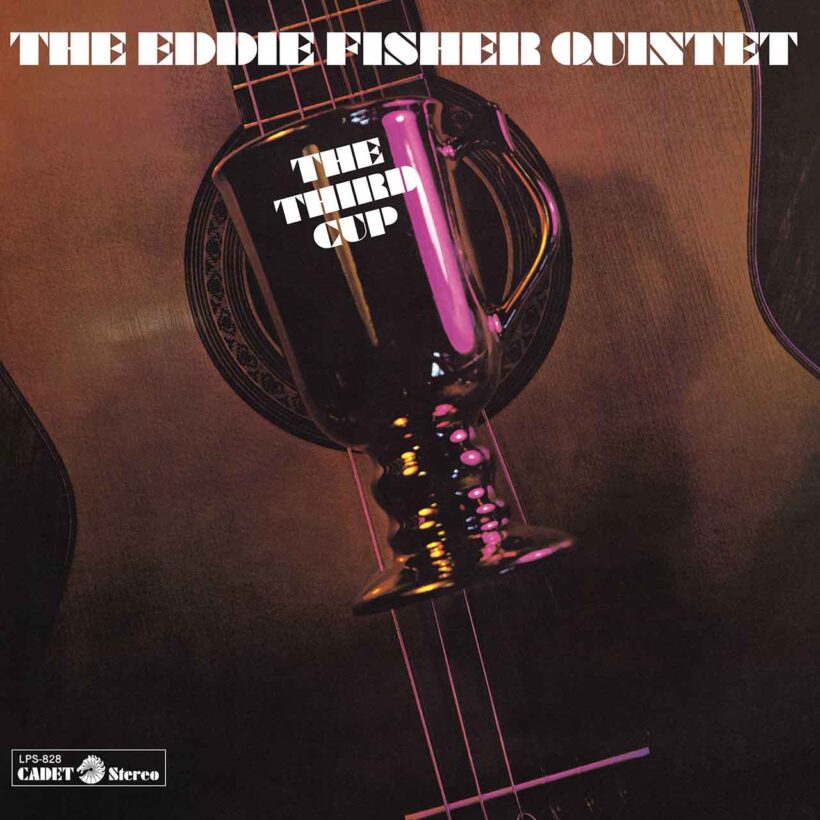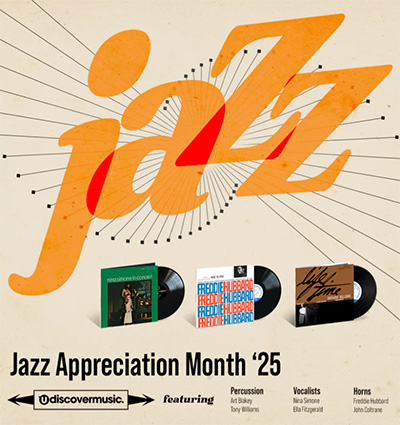‘The Third Cup’: The Eddie Fisher Quintet’s Jazz-Soul Gem
The album was a jazzy and soulful love letter to the bandleader’s time in St. Louis.

Guitarist Eddie Fisher synthesized the influences of blues, soul, jazz, rock, and funk into a playing style that could technically dazzle or cut right to the emotional heart of a tune with just a few licks. The Little Rock, Arkansas product was already gigging in local clubs as a teenager. But when an offer to join pianist Robert Talley’s jazz band necessitated a move to Memphis, he also found himself amidst a burgeoning soul scene catalyzed by the nascent Stax and Hi Records labels. A two-fold music education took place: formal composition, arrangement and theory under Talley; a looser, more improvisational approach while commiserating with budding soul men like Isaac Hayes, Willie Mitchell, and Steve Cropper. And after joining blues great Albert King’s group, Fisher eventually landed in St. Louis – the city where he made his professional reputation.
East St. Louis was home to the Blue Note club, owned by impresario, politician, and singer Leo Gooden – a figure of hefty civic influence and equally large girth. Gooden’s hotspot was the same club from which live jazz sets had long been broadcast across the region, keeping a teenaged Eddie glued to his radio back in his Little Rock days. So when Leo invited Eddie to join his combo in residence, Leo’s Five, Fisher leaped at the chance. At the Blue Note, Eddie could sit-in with legends like Oliver Nelson or Sonny Stitt, or join Sunday jam sessions that would attract stars of tomorrow like David Sanborn and Michael McDonald. The big man gifted each member of his house band a chalice – a symbol of one’s musical potential, i.e. one’s cup to fill. Of the five, Eddie’s was the third cup.
Gooden’s untimely passing preceded Fisher’s recording debut by a few years. But based on the elegiac sound of “The Third Cup,” his former boss was still very much in his thoughts. Swirling organ flourishes and hi-hats open the tune – evoking a spirit-stirring breeze coming in off the Mississippi – then yield to a laid back groove ideal for after hours reflection. Fisher’s opening five-note riff provides an immediate hook, and the rest of his nimble soloing is awash in gorgeous melancholia. Originally released locally as a 45, the single sold well enough to garner Fisher an album deal with Chess Records’ sub-label Cadet. And as per Gooden’s encouragement, The Third Cup – produced by revered St. Louis saxophonist and bandleader, Oliver Sain – fulfills Fisher’s promise in a quintet setting with as enjoyable a jazz-soul effort as any of the period.
“A Dude Called Zeke” mines similarly atmospheric late night vibes as the title track, employing an arrangement of descending parts that drift and fall like cigarette smoke. Sharp boogaloo numbers like “Shut Up” and “Two By Two” showcase Fisher’s affinity for the danceable sound of the day. But by 1969 the spectre of funk was looming over all of Black music, jazz included. A cover of one of Stevie Wonder’s earliest on-the-one Motown tracks, “Shoo-Be-Doo-Be-Doo-Be-Do-Da-Day,” serves as acknowledgment of the revolution on the horizon. Another recognition takes the form of “Scorched Earth,” a blistering though brief track that can’t decide if it’s a traditional uptempo jazz burner or hyper rock-funk number, and settles for a compelling hybrid. Fisher’s notes tumble from his fingers like he can’t get them off quickly enough, bassist Paul Jackson (later of Herbie Hancock’s Headhunters band) grounds him with a steady low end pulse, and an abrupt staccato hit slams the track shut. It also hints at Fisher’s interests beyond jazz – territory he’d soon explore with his next album, the psychedelic funk gem, Eddie Fisher and the Next One Hundred Years. As pleasurable as The Third Cup is, Fisher’s potential had only begun to be tapped.
Order The Third Cup by The Eddie Fisher Quintet on vinyl now.












